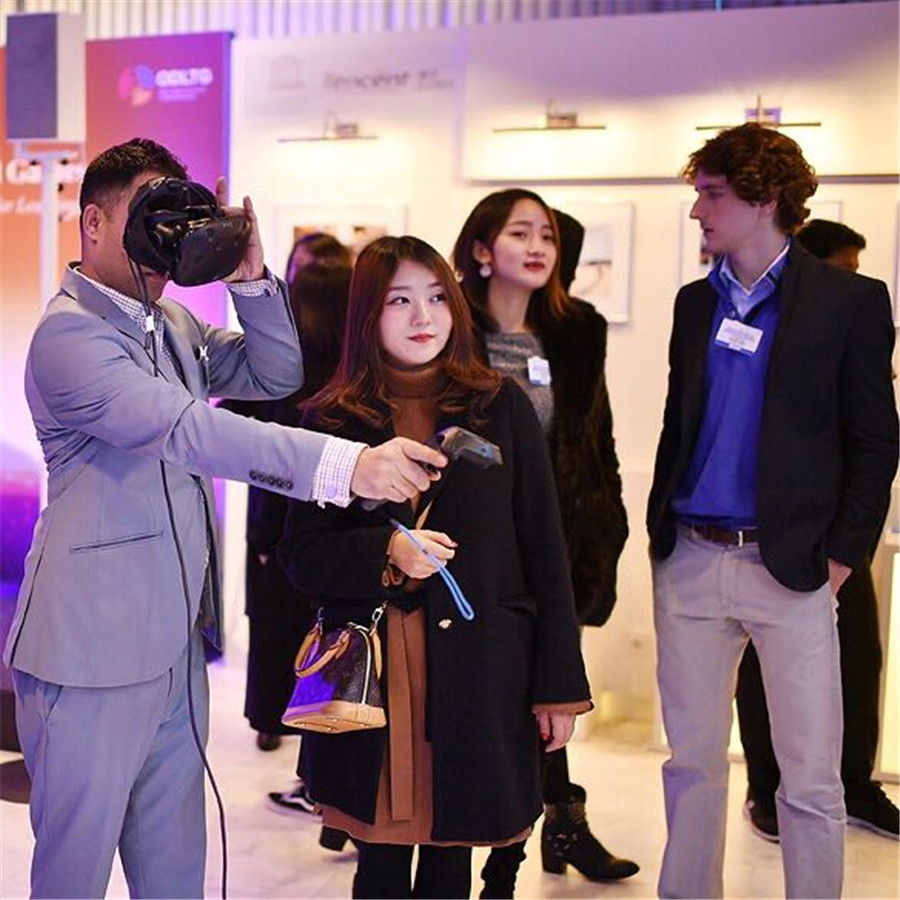 |
|
Players test the game hu when it is showcased at the UNESCO headquarters in Paris in January. [Photo provided to China Daily] |
In China, traditional games range from athletic events such as wrestling and dragon boat racing to tabletop games including Chinese chess and Go, not to mention word games like lantern riddles and rhyming couplets.
"Games do carry distinctive cultural genes. The same game played in different cultures would look different," Gao says.
Gao cites early prototypes of the now popular board game Aeroplane Chess as an example. While similar games were played around the world, the Chinese version called sheng guan tu (literally "rank promotion road map"), which first appeared in the Tang Dynasty (618-907), employed a unique Chinese printing technique for the game board, and each space was designated with the title of an official government position at the time.
Gao says reviving Chinese traditional games like "pot casting" does not just help to bring back the inherent cultural value of the games, but also helps people revitalize other Chinese cultural gems such as poetry and the 24 Solar Terms.
"Games are the epitome of a civilization," she says. "To play is human nature."
Apart from the Communication University of China, the Open Digital Library for Traditional Games project has attracted students from more than 10 universities from home and abroad, including Tsinghua University, Harvard University and Massachusetts Institute of Technology.
Students from these institutions engage in using information and communications technology to collect and store records of people playing traditional games in countries and regions around the world. All the data collected can be accessed for free on the project's official library platform.
"Young people have already started taking action to learn and safeguard the knowledge of traditional games and sports, from conducting research to exploring innovative ways to transform materials stored in the open digital library into creative content," says Marielza Oliveira, the director of the UNESCO Cluster Office in Beijing.
This year, they are working on researching and recovering traditional games portrayed in the Dunhuang Frescoes, according to Li Xiaoxiao, director of the Open Digital Library for Traditional Games project at Tencent.
The project will continue to encourage young people from China and outside to lend their creativity and insight into rejuvenating traditional games, Li adds.
Liu Yinglun contributed to the story.